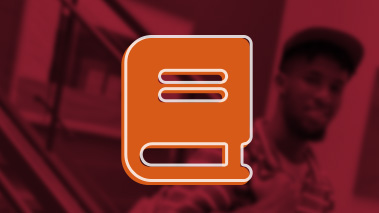Paralegal Studies
- Associate of Applied Science (A.A.S.)
Program Snapshot
Your Learning Options
In-Person, Hybrid, Online
61 Credit Hours
Estimated Time to Complete
2 years (5 full-time semesters)
In-State Tuition Per Credit Hour
$176.00 | Calculate your costs
Why Paralegal Studies?
Discover your path to a rewarding career in the legal field designed to set you on a track to success.
Our mission is to empower students with comprehensive legal education, practical skills, and ethical values necessary for success in the dynamic field of law. Through rigorous academic curriculum, hands-on training, and experiential learning opportunities, we cultivate competent and professional paralegals who contribute effectively to the legal profession and their communities. Our commitment to excellence ensures that graduates are prepared to meet the evolving needs of the legal industry with integrity and confidence.
- Focus on a career path that aligns with your interests and aspirations by selecting one of two specializations: Litigation or General Practice.
- Enroll at any time throughout the year and enjoy the freedom to study at your own pace with flexible learning options. 1
- Gain a competitive edge with our practical application coursework, designed to build skills, and provide tangible evidence of your expertise.
Paying for College
We are committed to using all of the available funds to help you gain access to a college education. In fact, more than 91% of our students graduate without any educational debt. In 2023, Reynolds Community College students received over $21 million dollars in grants, loans, work-study and scholarships with the average aid awarded totaling over $4,000 per student.
Payment plans are offered to break down tuition payments. Textbook Assistance and Laptop Lending Programs are also available. Be sure to explore all the types of financial aid available as well!

Why Reynolds?
We are more than a community college.
Reynolds is the key that unlocks the door to your academic and professional success. Here you will find a safe place to start. We will help you explore, dream, succeed, try, and try again. Our amazing faculty and highly personalized advisors, your Reynolds Navigators, are well known for guiding you to discover that "aha moment.” That means an outstanding college experience, less debt, more freedom, and a solid start on your future.
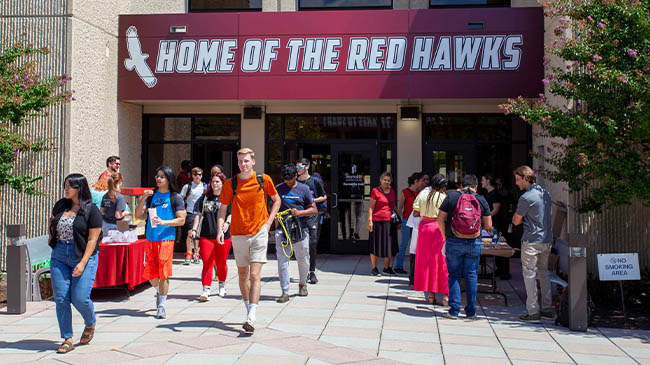
Our program offers flexibility, enabling you to transfer credits and progress at your own pace. With year-round scheduling, you can start your journey when it suits you best.
Our program is proudly approved by the American Bar Association (ABA), a testament to our commitment to excellence in legal education. You can trust that you're receiving a high-quality education that meets industry standards.
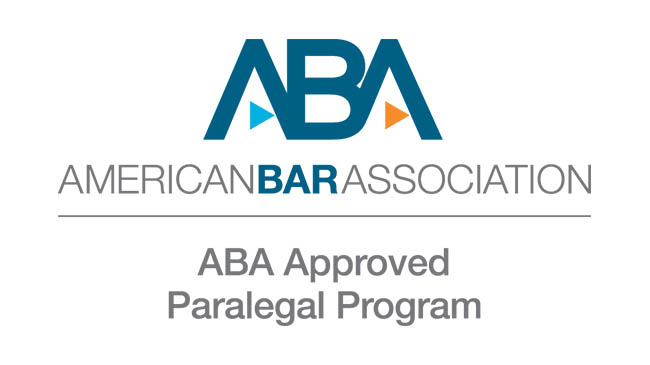
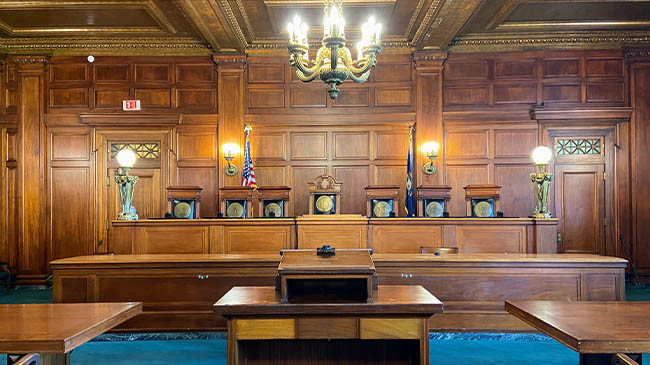
Open doors to a multitude of legal career paths, including roles such as paralegal, legal analyst, legal operations, legal practice assistant, and law firm administrator. Your options are vast and exciting.
I want to be more intentional about designing my courses and delivering the content by way of sectioning it into shorter bits by offering some intellectual pauses for students to pause and reflect and then come back to the content. This is important for all students, especially those with learning challenges. These are all things I wish that my teachers had done for me.
Melissa Ansley Brooks
Paralegal Department Chair Melissa Ansley Brooks was selected as Instructor of the Year by Reynolds students, and uses modern practices such as AI (Artificial Intelligence) in her delivery of online classes.
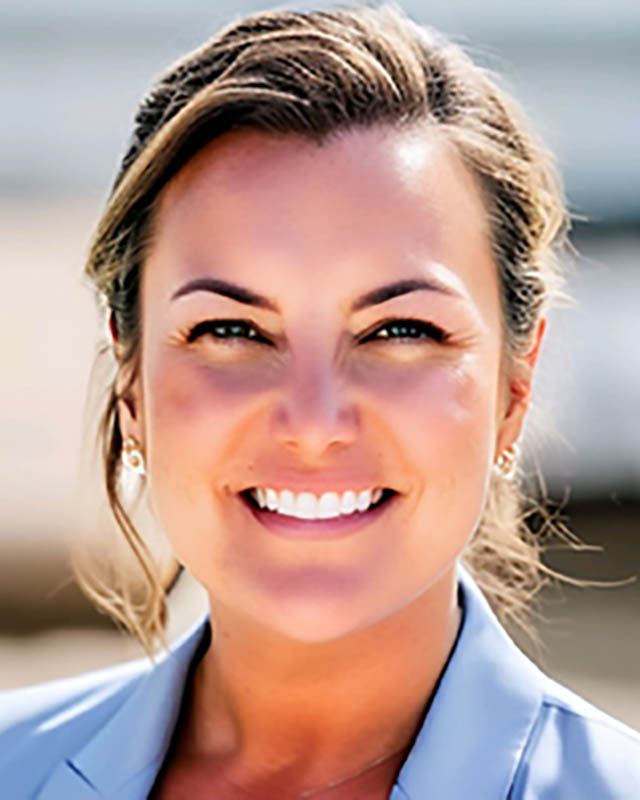
Class Highlights
LGL 125 - Legal Research
Gain an understanding of the components of a law library with an emphasis on research skills using various research tools.
LGL 218 - Criminal Law
Focus on major crimes, including their classification, elements of proof, intent, conspiracy, responsibility, parties, and defenses.
LGL 238 - Bankruptcy
Learn about non-bankruptcy alternatives and the laws of bankruptcy, including Chapters 7, 11, 12, and 13 of the Bankruptcy Code.
Program Roadmap
Get all the details on our Paralegal Studies program, including class sequences, admission requirements, financial considerations, and more.
Additional Program Information
PURPOSE: There is a need in the greater Richmond area and throughout Virginia for paralegals. There is a need to train those who are presently employed in legal secretarial or legal assistant positions who wish to become paralegals. The Paralegal Studies Associate of Applied Science degree is designed to meet these educational needs by preparing individuals to perform as legal assistants or paralegals under the supervision of an attorney. The program is approved by the American Bar Association.
OCCUPATIONAL OBJECTIVES: Paralegal for private law firms, administrative agencies, other governmental agencies, mortgage companies, title insurance companies, and corporations.
- All Paralegal Studies graduates will demonstrate the ability to conduct comprehensive legal research and effectively evaluate the credibility and relevance of various sources, including online databases, case law, statutes, and secondary materials, ensuring the accuracy and reliability of the sources collected.
- All Paralegal Studies graduates will develop the skill to articulate complex legal concepts clearly and concisely. They will use precise legal terminology, proper grammar, and Bluebook citation conventions to produce well-structured legal documents including but not limited to memos, briefs, contracts, and legal correspondence.
- All Paralegal Studies graduates will demonstrate knowledge of the core competencies to assist in substantive legal content including but not limited to corporate and real estate transactions, bankruptcy proceedings, estate planning and probate, trial preparation and eDiscovery.
- All Paralegal Studies graduates will achieve proficiency through certification in select software programs used in the legal field. Additionally, students will evidence proficiency in search and retrieving of information on various government and administrative websites including but not limited to Virginia Courts Online, Virginia State Corporation Commission, the Securities and Exchange Commission, and PACER. Graduates will explore developing artificial intelligence tools within the legal field.
- All Paralegal Studies graduates will demonstrate knowledge application of ethical responsibilities associated with the Canons of the NALA Code of Ethics and Professional Responsibility, court rules, agency rules, and governing statutes to resolve ethical problems.
ADMISSION REQUIREMENTS: General college curricular admission.
It is strongly recommended that students meet with the Department Chair before registering for classes, or as early as possible in their first semester of enrollment. Students with developmental studies course recommendations resulting from the English placement test must complete those courses prior to admission to any Paralegal Studies (LGL) course. Students placed in co-requisites EDE 11 and ENG 111 must complete those courses either prior to or concurrently with LGL 110. Any student who receives a final grade lower than “C” in any of the courses in the Paralegal Studies curriculum must obtain permission from the Department Chair to continue as a student in the Paralegal Studies program. Students will be required by the Department Chair to repeat LGL-prefix courses and ENG 111-ENG 112 courses where grades below “C” are received. Legal assistants, paralegals, and other non-lawyers are prohibited from practicing law without a license. Paralegals and legal assistants may not provide legal services directly to the public, except as permitted by law.
COMPUTER COMPETENCY REQUIREMENT: Students in this program will meet the college’s computer competency requirement by successfully completing LGL 222 - Information Technology for the Paralegal.
ARTICULATION AGREEMENTS: A standing articulation agreement exists with the University of Richmond’s Continuing School of Education, Bachelor of Science in Paralegal Studies.
TRANSFER OF LEGAL SPECIALTY COURSES: The Paralegal Studies program accepts the transfer of legal specialty course credits completed at other institutions if the institution is accredited by the appropriate regional accrediting body, such as the Southern Association of Colleges and Schools Commission on Colleges.
A legal specialty course is a course that:
- Covers substantive law or legal procedures or process
- Has been developed for paralegals
- Emphasizes practical paralegal skills
- meets other guidelines of the American Bar Association
The following courses are legal specialty courses:
- LGL 117 - Family Law
- LGL 125 - Legal Research
- LGL 126 - Legal Writing
- LGL 216 - Trial Preparation and Discovery Practice
- LGL 221 - E-Practice
- LGL 222 - Information Technology for the Paralegal
- LGL 226 - Real Estate Abstracting
- LGL 228 - Real Estate Settlement Practicum
- LGL 235 - Legal Aspects of Business Organizations
- LGL 225 - Estate Planning and Probate
- LGL 238 - Bankruptcy
Credits from another institution for legal specialty courses will only be awarded if delivered in a format that meets the guidelines of a legal specialty course as defined by the American Bar Association and is approved by the Paralegal Studies Department Chair. Students may have to submit their work product before approval will be granted. In all cases, the grade for such course must be “C” or better, and no such credit will be given to any courses awarded at an institution outside of the United States. No credit by examination or portfolio is allowed for legal specialty coursework, and no more than fifty percent (50%) of legal specialty credits required by the Paralegal Studies program shall be accepted for transfer credit.
FOUR-YEAR COLLEGE/UNIVERSITY TRANSFER INFORMATION: A standing articulation agreement exists with the University of Richmond’s Continuing School of Education, Bachelor of Science in Paralegal Studies.
PROGRAM APPROVAL: Our program bears the prestigious approval of the American Bar Association (ABA), underscoring our unwavering dedication to delivering excellence in legal education.

